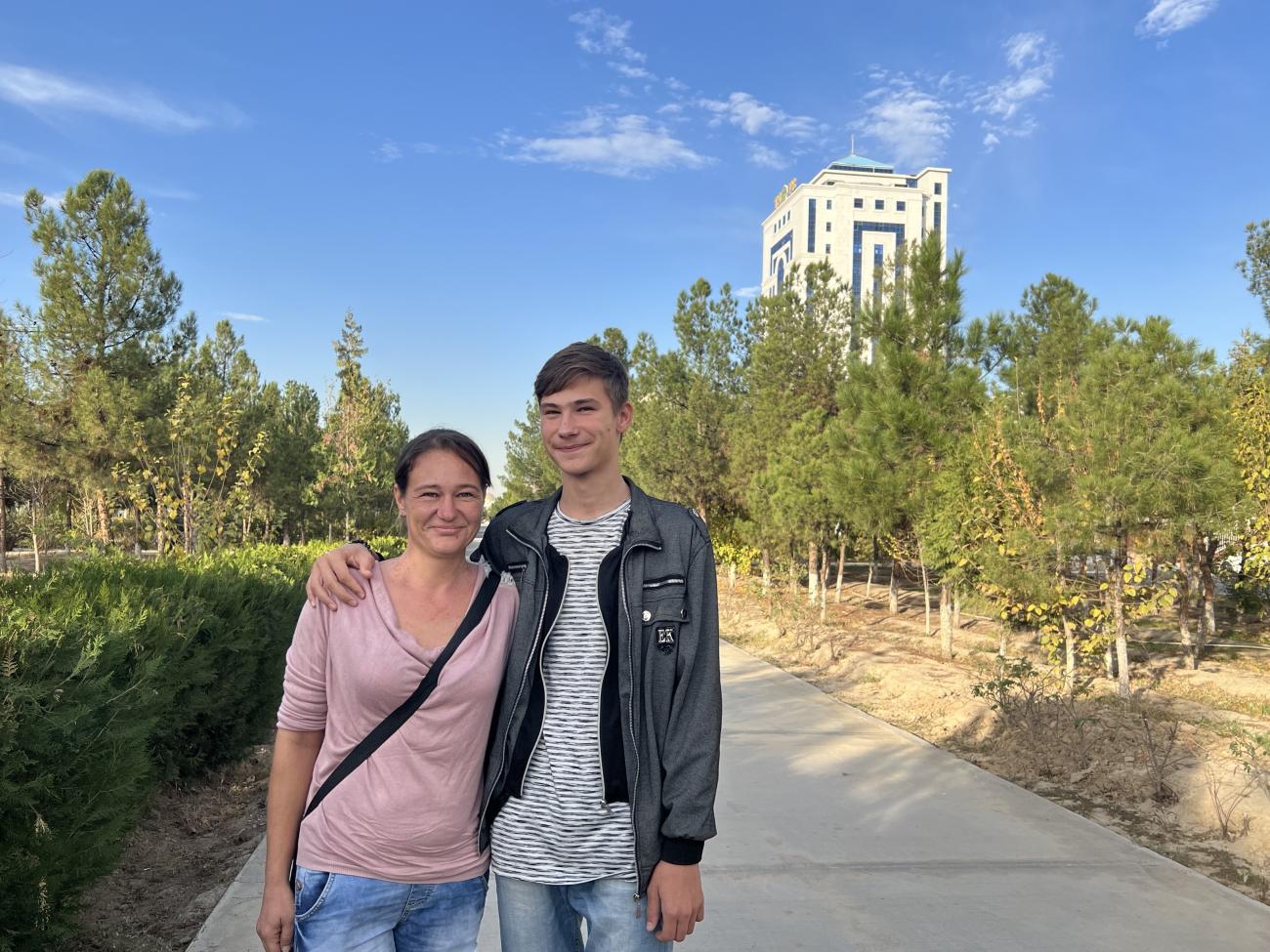“With citizenship, I will feel complete.”

Anna in Turkmenistan was not concerned about her missing identity documents until it affected her children.
By Mariko Hall, UNHCR External Relations Officer, with Balzhan Oshakbayeva, Protection Associate
For most of her life, Anna thought she was a citizen of Russia. Since moving to Ashgabat, Turkmenistan, in the early 90s when she was five years old, she would tell people that she was a Russian citizen.
It wasn't until recent years, when her and her mother visited the Russian embassy, that documents were uncovered stating she was, in fact, not a citizen at all. Suddenly Anna understood that not only was she not a citizen of Russia, but she was not considered a citizen of any country in the world – she was stateless.
“I was so lost when I heard that I’m not a citizen,” says Anna.
Inter-generational impacts of statelessness
When Anna came to the newly independent Turkmenistan as a child, she was enrolled in kindergarten, and went on to complete primary school and high school in Ashgabat. She learnt Turkmen language and settled into her new home, while still believing herself to be a citizen of Russia.
Even when her birth certificate was lost, and she faced challenges as an adult because of her lack of identity documents, she was not too concerned. Anna worked unofficially, first as a waitress until she was 25 years old, and then doing private jobs such as cleaning.
“I had issues because I didn’t have citizenship documents, but I didn’t pay serious attention to them,” says Anna. “I only started to pay attention when I had children.”
When Anna's two children were born, they could not be registered because she did not have any documents to prove her identity or nationality. Anna’s two children were then stateless too.
Statelessness in Turkmenistan
A stateless person is not considered as a national by any country. As of mid-2023, there were 3,351 reported stateless people in Turkmenistan. Most are ex-citizens of the former Soviet Union, or their descendants, who have not yet acquired or confirmed citizenship of Turkmenistan. Others are born stateless or became stateless due to gaps in nationality laws, international migration, and mixed marriages.
Turkmenistan hosts documented stateless people, as well as stateless people who do not have documents – so-called ‘people with undetermined nationality’.
With no proof of having a nationality or any legal status, people with undetermined nationality have difficulty accessing basic rights such as education, healthcare, employment, and freedom of movement. They may be unable to register marriage, or – like with Anna – the birth of their children.
Documented stateless people in Turkmenistan are issued with a ‘Stateless person’s certificate’ from the government, enabling them to stay in the country, and access legal employment, public services and healthcare.
Turkmenistan also practises the ‘propiska’ system, inherited from the Soviet era, requiring every adult and household to prove ownership of a place of permanent residence to be able to access employment, social benefits (such as maternity and child support, and pension payments), free health care and education for children. Stateless people in Turkmenistan, however, cannot get propiska.
“I’m tired of this situation,” says Anna. “I just want official, decent work, with official payment.”
As they were born in Turkmenistan, Anna's children were eventually confirmed as citizens based on the expired USSR passport of their grandmother. Even so, without his mother’s ‘propiska’, 16-year-old Dmitriy cannot complete his mandatory military service, obtain a passport, or pursue higher education.
Ending statelessness by 2024
Since the launch of the 10-year global #IBelong Campaign to End Statelessness, Turkmenistan, supported by UNHCR, has made great process in reducing and preventing statelessness, documenting the citizenship of more than 13,000 people. Turkmenistan is the only country in Central Asia that has already acceded to the two UN Conventions on Statelessness.
In 2020, Turkmenistan introduced a law on Civil Status Acts ensuring all children born in the country can be registered at birth, including those with undocumented parents. In 2021, Turkmenistan adopted Statelessness Determination Procedures.
These improvements in legislation have enabled Anna to be documented as a stateless person. With her Stateless Person’s certificate, Anna has been able to apply for citizenship of Turkmenistan, which – as per Turkmenistan’s National Action Plan to End Statelessness – she should obtain later this year.
“With citizenship, I will feel complete,” says Anna. “I will feel like a full-fledged person, a member of society.”


